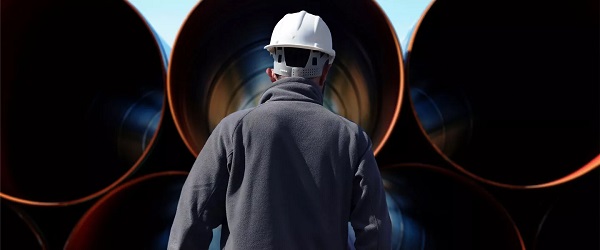News
Blackfalds Mayor Requests Town’s Name Be Included In Provincial Constituency Name

(Blackfalds Mayor Melodie Stol)
Written by Sheldon Spackman / Photos by Lindsay Wiebe
A review of Alberta’s Electoral Boundaries is underway and Red Deer was the site on January 20th of a Public Hearing to hear from area residents as part of that review. In fact, 15 Public Hearings are taking place across the Province this month and next, with another one slated for Olds on Wednesday, January 25th. The review is being done by the Electoral Boundaries Commission, as the last one was done in 2009/2010. Red Deer’s Public Hearing took place at the Baymont Inn and Suites and featured numerous presenters.
Among the presenters, Blackfalds Mayor Melodie Stol who expressed the town’s desire to have it’s name included in the provincial Constituency name. At the hearing, Stol said “The Town of Blackfalds has been one of Alberta’s fastest growing communities, having experienced a population increase of 8.5 percent in the single year of 2015-2016 and we are home to a total now of 9,510 residents.” Stol added, “Since the year 2006, Blackfalds has grown 101 percent, compared to the provincial average of 25 percent. It is our wish that in whichever constituency that we are placed, that we be called Blackfalds -Lacombe-Ponoka in this situation.” Stol pointed out that Blackfalds now has more population than the Town of Ponoka and it is currently not acknowledged in the Constituency name. She also requested that Blackfalds stay within it’s current Constituency of Lacombe-Ponoka, as the three communities have a number of partnerships, including a Regional Water Line and Regional Waste Water Line project they’re currently working on. Stol closed out her remarks by saying “We’re not anyone’s bedroom community anymore, we’re a successful, thriving town and that acknowledgement should happen.”
In a Provincial Government release, Honourable Justice Myra Bielby, Commission chair, says “Given that our population has grown by more than 20 per cent in the last eight years, a review is key to ensuring fair and effective representation for all Albertans.” Bielby adds, “Now is the time for Albertans to share their thoughts as to how constituency boundaries should change through oral or written submissions.”
Any Albertan can take part in the process by providing a written submission by February 8th. Submissions and the identities of the authors will be made public. Officials say the Commission will ultimately make recommendations to the Legislative Assembly of Alberta as to the areas, boundaries and names of the existing electoral constituencies of the province. The Commission will consider public input, population figures and relative population density throughout the province, common community interests, existing municipal and natural boundaries and effective representation.
An Interim Report on the Review is expected by May 31st, with the Final Report available by October 31st of 2017.
Internet
It’s only a matter of time before the government attaches strings to mainstream media subsidies

Misinformation is not exclusive to alternative online news organizations
In a previous world, whether they succeeded or failed at that was really no one’s business, at least provided the publisher wasn’t knowingly spreading false information intended to do harm. That is against the law, as outlined in Section 372 of the Criminal Code, which states:
“Everyone commits an offence who, with intent to injure or alarm a person, conveys information that they know is false, or causes such information to be conveyed by letter or any means of telecommunication.”
Do that, and you can be imprisoned for up to two years.
But if a publisher was simply offering poorly researched, unbalanced journalism, and wave after wave of unchallenged opinion pieces with the ability to pervert the flow of information and leave the public with false or distorted impressions of the world, he or she was free to do so. Freedom of the press and all that.
The broadcasting world has always been different. Licensed by the Canadian Radio-television and Telecommunications Commission (CRTC), content produced there must, according to the Broadcasting Act, be of “high standard”—something that the CRTC ensures through its proxy content regulator, the Canadian Broadcast Standards Council (CBSC).
Its most recent decision, for instance, condemned Sportsnet Ontario for failing to “provide a warning before showing scenes of extraordinary violence” when it broadcast highlights of UFC mixed martial arts competitions during morning weekend hours when children could watch. If you don’t understand how a warning would have prevented whatever trauma the highlights may have caused or how that might apply to the internet, take comfort in the fact that you aren’t alone.
The CRTC now has authority over all video and audio content posted digitally through the Online Streaming Act, and while it has not yet applied CRTC-approved CBSC standards to it, it’s probably only a matter of time before it does.
The same will—in my view—eventually take place regarding text news content. Since it has become a matter of public interest through subsidies, it’s inevitable that “high standard” expectations will be attached to eligibility. In other words, what once was nobody’s business is now everybody’s business. Freedom of the, er, press and all that.

Alberta Premier Danielle Smith
Which raises the point: is the Canadian public well informed by the news industry, and who exactly will be the judge of that now that market forces have been, if not eliminated, at least emasculated?
For instance, as former Opposition leader Preston Manning recently wondered on Substack, how can it be that “62 per cent of Ontarians,” according to a Pollara poll, believe Alberta Premier Danielle Smith to be a separatist?
“The truth is that Premier Smith—whom I’ve known personally for a long time—is not a separatist and has made that clear on numerous occasions to the public, the media, and anyone who asks her,” he wrote.
I, too, have been acquainted for many years with the woman Globe and Mailcolumnist Andrew Coyne likes to call “Premier Loon” and have the same view as Manning, whom I have also known for many years: Smith is not a separatist.
Manning’s theory is that there are three reasons for Ontarians’ disordered view—the first two being ignorance and indifference.
The third and greatest, he wrote, is “misinformation—not so much misinformation transmitted via social media, because it is especially older Ontarians who believe the lie about Smith—but misinformation fed into the minds of Ontarians via the traditional media” which includes CBC, CTV, Global, and “the Toronto-based, legacy print media.”
No doubt, some members of those organizations would protest and claim the former Reform Party leader is the cause of all the trouble.
Such is today’s Canada, where the flying time between Calgary and Toronto is roughly the same as between London and Moscow, and the sense of east-west cultural dislocation is at times similar. As Rudyard Kipling determined, the twain shall never meet “till earth and sky stand presently at God’s great judgment seat.”
This doesn’t mean easterners and westerners can’t get along. Heavens no. But what it does illustrate is that maybe having editorial coverage decisions universally made in Hogtown about Cowtown (the author’s outdated terminology), Halifax, St John’s, Yellowknife, or Prince Rupert isn’t helping national unity. It is ridiculous, when you think about it, that anyone believes a vast nation’s residents could have compatible views when key decisions are limited to those perched six degrees south of the 49th parallel within earshot of Buffalo.
But CTV won’t change. Global can’t. The Globe is a Toronto newspaper, and most Postmedia products have become stripped-down satellites condemned to eternally orbit 365 Bloor Street East.
The CRTC is preoccupied with finding novel ways to subsidize broadcasters to maintain a status quo involving breakfast shows. So we can’t expect any changes there, nor can we from the major publishers.
Which leaves the job to the CBC, whose job it has always been to make sure the twain could meet. That makes it fair to assume Manning will be writing for many years to come about Toronto’s mainstream media and misinformation about the West.
(Peter Menzies is a commentator and consultant on media, Macdonald-Laurier Institute Senior Fellow, a past publisher of the Calgary Herald, a former vice chair of the CRTC and a National Newspaper Award winner.)
Business
Elon Musk’s X tops Canadian news apps, outperforming CBC, CTV

From LifeSiteNews
While X sits at number one, CBC News, Canada’s crown news agency, ranks at number 9 in news apps. Similarly, CTV News is ranked at number 10.
Elon Musk’s X, formerly known as Twitter, now ranks number one in news apps for Canadians, outranking mainstream media outlets.
In an August 7 post, Elon Musk, the owner of X, celebrated X placing first among news apps downloaded from the app store in Canada, as Canadians increasingly turn to alternative media sources amid ongoing media censorship and bias.
“This indicates that a very large segment of the Canadian population no longer trusts the mainstream media,” Campaign Life Coalition’s Jack Fonseca told LifeSiteNews.
“They view legacy news outlets like the CBC as nothing more than propaganda factories, paid by the Liberal government to spew forth its narratives,” he continued.
Since X was bought by Musk in 2023, the platform has relaxed its censorship policies, allowing for a more open discussion of controversial topics.
While by no means perfect, the app has become a valuable method of sharing censored information, especially in Canada, where most media outlets receive funding from the Liberal government.
“Generally speaking, free speech reigns on X, and that’s what people want,” Fonseca declared. “They want the ability to hear both sides of an issue, no matter how controversial. The freedom to say what they believe and not be censored.”
“The CBC, CTV, Toronto Star and all the other propaganda machines do not allow both sides of an issue to be aired in a fair or balanced manner,” he continued.
Indeed, while X sits at number one, CBC News, Canada’s crown news agency, ranks at number 9 in news apps. Similarly, CTV News is ranked at number 10.
CBC’s low ranking is likely linked to the fact that the outlet receives over a billion dollars in funding from the Liberal government each year. Liberal funding, in addition to biased reporting, has led many Canadians to consider the outlet nothing more than an arm of the Liberal party.
This January, the watchdog for the CBC ruled that the state-funded outlet expressed a “blatant lack of balance” in its covering of a Catholic school trustee who opposed the LGBT agenda being foisted on children.
There have also been multiple instances of the outlet pushing leftist ideological content, including the creation of pro-LGBT material for kids, tacitly endorsing the gender mutilation of children, promoting euthanasia, and even seeming to justify the burning of mostly Catholic churches throughout the country.
However, many Canadians are awakening to the lies and half-truths perpetuated by legacy media outlets and are instead turning to alternative media sources.
According to a 2024 global “trust” index, the majority of Canadians believe that legacy media journalists and government officials are not trustworthy and are “lying to them” regularly.
Fonseca stressed the importance of “the rapidly growing independent media orgs (…) like LifeSiteNews, Rebel News, the Western Standard, Juno News and Epoch Times. But even these alternative media rely significantly on X to amplify their content.”
“Undoubtedly, the Carney regime will try to shut down X, or force censorship on the platform through legislation and regulation, so we must fight and pray to ensure our shill globalist Prime Minister doesn’t succeed,” he warned.
“Carney would have us all become slaves to the state, without any voice or real power. Although X isn’t perfect, we need it desperately if we’re to have any hope of Canada staying ‘glorious and free,’” Fonseca declared.
-

 Business5 hours ago
Business5 hours agoOver $2B California Solar Plant Built To Last, Now Closing Over Inefficiency
-

 Alberta2 days ago
Alberta2 days agoFederal policies continue to block oil pipelines
-

 Autism2 days ago
Autism2 days agoAutism – what we know
-

 Business4 hours ago
Business4 hours agoWEF has a plan to overhaul the global financial system by monetizing nature
-

 espionage1 day ago
espionage1 day agoCanada Under Siege: Sparking a National Dialogue on Security and Corruption
-

 COVID-192 days ago
COVID-192 days agoSecond Massive Population Study Finds COVID-19 “Vaccines” Increase Risk of 6 Major Cancers
-

 Business1 day ago
Business1 day agoGoogle Admits Biden White House Pressured Content Removal, Promises to Restore Banned YouTube Accounts
-

 Business6 hours ago
Business6 hours agoThe Leaked Conversation at the heart of the federal Gun Buyback Boondoggle






